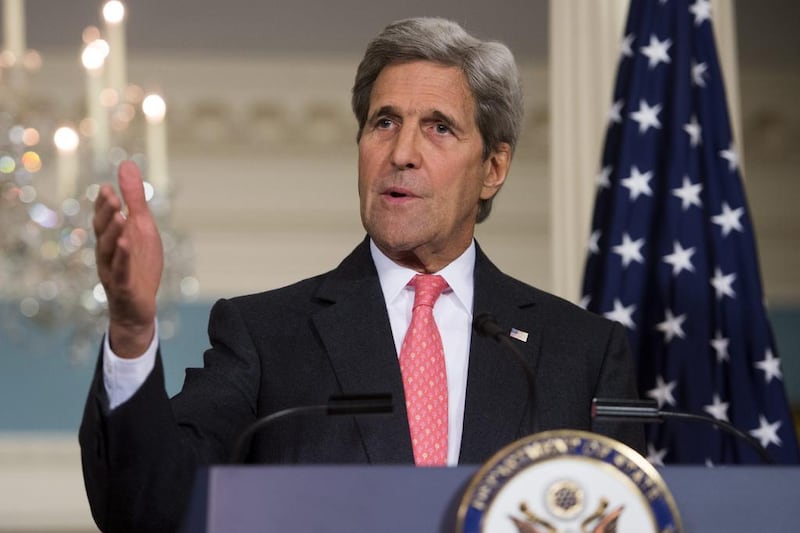When in doubt, partition. That ugly rule was once favoured by European powers. A century ago, they took a knife to the Ottoman Empire and sliced it up into myriad territories. To this day these remain fragile because their mixed populations never agreed acceptable social contracts.
The United Nations tried the same thing in Palestine in 1947 and Britain in India the same year, both leaving a legacy of conflict that prevails until now. Often, while initially motivated by an urge to separate divided populations and prevent volatile admixtures, partition failed to resolve claims on territories once shared, leaving in place perennial instability.
The late Christopher Hitchens saw partition as an extension of the phase when imperial powers played on the differences of their subjects to retain control, creating enduring divisions. “From proclaiming that withdrawal, let alone partition, is the very last thing they will do, the colonial authorities move to ensure that these are the very last things they do,” he wrote.
The Americans have shown a similar propensity in the past decade or so. In 2006, Joe Biden, who was then the leading Democrat on the Senate Foreign Relations Committee, and Leslie Gelb, a former president of the Council on Foreign Relations, proposed dividing Iraq into three areas. To Mr Biden the idea was “to maintain a united Iraq by decentralising it, giving each ethno-religious group ... room to run its own affairs, while leaving the central government in charge of common interests”.
The plan was never adopted, because what Mr Biden and Mr Gelb were proposing was a radical, American-led transformation of the Iraqi state. That’s not to say, however, that their instinct was all wrong. Iraq, like other heterogeneous Arab states, has yet to find an adequate formula allowing it to reconcile its different sects and ethnicities in a solidly unified entity.
American officials have faced a similar dilemma with regard to Syria. Recently, secretary of state John Kerry warned that the United States would resort to a plan B if the ceasefire accord in Syria was not respected by the Syrian regime and Russia. Soon thereafter he explained what he meant when he told the Senate Foreign Relations Committee: “It may be too late to keep it as a whole Syria if we wait much longer.”
Mr Kerry was not advocating partition, but there is thinking along those lines in circles close to the Obama administration. Philip Gordon, a former White House coordinator for the Middle East, North Africa and the Gulf, recently wrote a report for the Rand Corporation, with James Dobbins and Jeffrey Martini, calling for the effective partition of Syria into zones, taking into consideration ethno-sectarian divisions.
Mr Gordon and his colleagues see their plan as a temporary measure until a long-term arrangement is agreed for Syria. However, it is also clear that, for them, the provisional may become permanent. They admit that “restoring a unified Syria is likely to take time, if it is possible at all”.
The Rand report is hardly a formal statement of American intentions, so it would be a mistake to regard it as such. However, Mr Kerry’s remarks indicated that he was not far from Mr Gordon and his colleagues in viewing a solution in Syria as resulting from one of two paths: either the brokering of a broad political arrangement among Syrian factions and their regional sponsors; or the securing of an agreement on an immediate ceasefire in place, followed by negotiations over Syria’s future.
The first option, Mr Gordon and his co-authors believe, while most desirable, is impossible under present circumstances. They may be right. Mr Kerry’s experiences with the failed Geneva conference in early February will not have convinced him otherwise. Therefore, he and the Russians have, since then, focused on a ceasefire, meaning each side consolidates the territory it now controls – what the Rand paper proposed.
But even if Mr Kerry is thinking of an eventual partition plan, it’s not clear the Russians are. Both Moscow and Bashar Al Assad have hinted that they might accept a federal solution for Syria, on condition that it remain a united country. However, that’s quite different from what Mr Gordon and his co-authors have in mind, with its potential implications.
An evocative passage in the Rand paper was the condition that a ceasefire in Syria must have international oversight. Yet it is telling that the authors saw two countries, Saudi Arabia and Turkey, as possible spoilers of a settlement. This reflected the revisionist mood in Washington, but also how poor have become US relations with two of its traditional regional allies.
Mr Kerry may not have many options, but he will have to be careful. No state likes to be chopped up by foreigners, no matter how deep the domestic divisions. Partition is no lasting solution for Syria. At best it is a momentary remedy sure to bring severe consequences. The urge to stop the fighting should not invite inadequate schemes that will only perpetuate resentments.
Michael Young is opinion editor of The Daily Star in Beirut
On Twitter: @BeirutCalling





